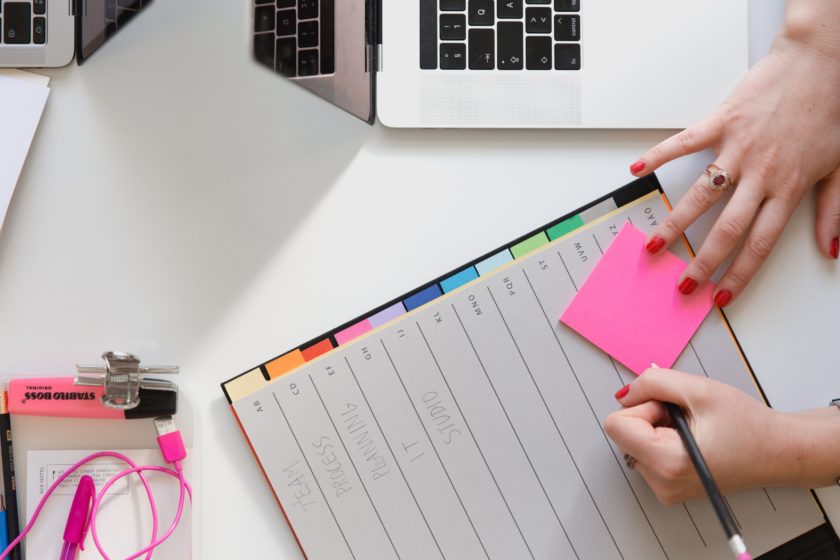How to study better and do everything on time? How to memorize tons of information and not feel drained at the end of the day? Is it even possible?
These are the questions all students ask themselves (and Google) every day. Luckily, there are some answers!
And while it’s hardly possible to find one unified solution to make students’ lives easy-peasy, there still are a lot of useful and effective techniques that can really make a difference.
Read on to learn more about them.

1. Set Goals
No goals equals no achievements. This golden rule works for practically any person of any age and occupation. And certainly, it works for students, too.
If you are well acquainted with the feelings of anger and frustration that come with the understanding that all your efforts seem to be pointless and you’re not actually moving forward to your aim, you might be having problems with goal setting.
In this case, you can try setting SMART goals. This acronym is well-known an is believed to have emerged in the early 80s when it appeared in an issue of Management Review, and it usually stands for:
● Specific;
● Measurable;
● Achievable (Attainable);
● Relevant (Realistic);
● Time-based (Time-bound).
If you learn to set goals that answer these criteria, your efforts will stop being unproductive and the feeling of contentment from achieving your goals will give you even more energy to aim even higher.
2. Manage Time Wisely
Proper time management is another cornerstone of high productivity. So, if you feel like you never have enough time, you may not be organizing your time wisely.
There are quite a lot of time management life hacks, as the topic is extremely popular.
For example, it’s important to delegate tasks: sometimes it may be better to hire an online essay writing service than spend hours on an assignment that’s unimportant.
Among other useful tips are:
● planning ahead;
● prioritizing tasks;
● staying within time limits.
For planning, you can use anything from a simple paper notebook to an online task planner like Trello – the main idea is to actually have a plan in a visual form.
It’s also crucial to avoid procrastination and do things in order of importance – otherwise, you may find yourself in an unpleasant situation when you’ve already done all the less important tasks but don’t have enough time left to do the most important ones.
For this same reason, it’s essential to set time limits for your tasks, at least for the bigger ones.
3. Focus on One Occupation at a Time
Multitasking is a myth. Scientists say, we never actually multitask – our brain just switches quickly from one task to another.
So quickly, that we don’t really notice it, so it seems to us that we manage to do multiple tasks at a time.
But have you ever noticed that productivity suffers immensely from these attempts to be here, there, and everywhere at a time?
Rapid switching between occupations requires resources that could have been put to better use.
Thus, we spend more time on every given task, get more tired, and achieve poorer results while trying to multitask.
The best thing you can do when working on a specific assignment is to focus on it exclusively during the time period planned.
You can, of course, take pauses to distract and switch to something else but try to avoid doing multiple things simultaneously.
4. Take Notes
You’ve surely heard about the immense importance of taking notes. Relying solely on our memory is dangerous because however hard we try, it’s almost impossible to keep everything we need to remember in our heads.
So, writing down reminders and important ideas is inevitable.
But have you ever thought that there are more ways than one to take notes? Most people have a notebook where they write everything down at random or use a standard notes app in their smartphones.
That works, but here are some more ideas of what you can use:
● sticky paper notes;
● software sticky notes (apps). With noticeboard, you will always remember to order an essay at professays.com and get a high-quality paper.
● sound recorder.
Combine these options to achieve the best possible result and never miss out on anything worth remembering.

5. Improving Your Memory
With all the technology at our disposal, having a good memory is still essential, especially for students who have to remember and retain vast amounts of information.
You won’t be allowed to use your smartphone during an exam, so the sooner you start working on improving your memory – the better.
There are various techniques for memory improvement, like memory card games, mnemonics, and visualizing concepts, but a good idea would be to start from the basics: adopting healthy habits and getting enough sleep.
Remember that no techniques will ever work if you’re constantly stressed and tired.
6. Using Effective Studying Techniques
Finally, it’s important to know and use modern studying techniques in order to not waste your energy.
There are some better suggestions now than reading your textbook over and over, mechanically trying to memorize something that you don’t even understand.
Some of the studying strategies that are proven to be effective are:
● Spaced practice. This is when you learn something for short periods of time regularly rather than spending one long period of time on a task and then abandoning it completely.
● Retrieval practice. This technique involves using all your knowledge of the subject and everything related to it rather than relying on information obtained from outside sources.
● Interleaving practice. This practice basically implies studying multiple related subjects at a time rather than focusing on only one topic before moving on further.
Wrapping Up
There are quite a lot of ways for students to enhance their productivity, academic performance, and overall quality of life.
In this article, we’ve listed some of the most essential and effective ones.
Implementing these techniques into your everyday life may not be easy, but their effect is so profound that it’s certainly worth the effort.
What’s more – mastering these practices will not only get you through student years but will also be helpful in your adult life, so it’s better to learn them early!
[wp_ad_camp_1]

